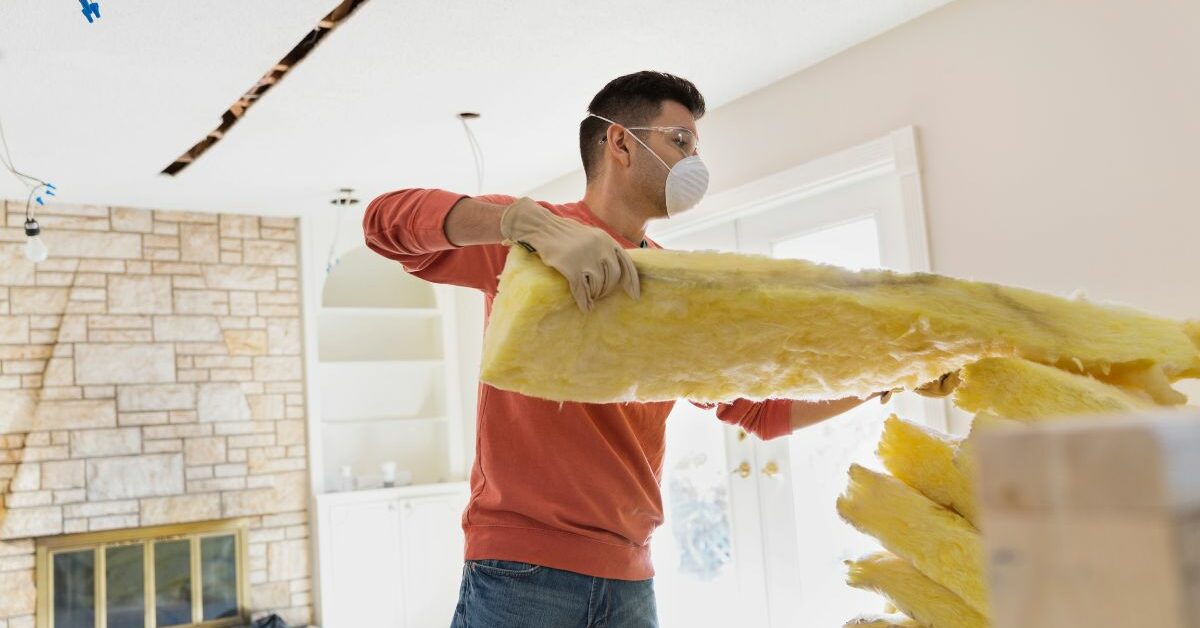How To Become An Insulation Installer?
If you’re looking for a career in construction that offers ample opportunities for growth, becoming an insulation installer might be the right choice for you. Insulation installers are responsible for repairing and installing insulation materials in commercial and residential buildings to ensure optimal energy efficiency and improved indoor air quality. This article will guide you through the necessary steps and skills required to become an insulation installer and highlight the benefits of working in this field.
Steps To Becoming An Insulation Installer
The path to becoming an insulation installer involves several necessary steps, including:
- Complete High School
Although not required, earning a high school diploma is essential and provides foundational knowledge in subjects such as math, science, and communication.
- Gain Experience:
One of the best ways to gain experience in this field is by working as an insulation helper or assistant, which provides basic training and exposure to the industry’s equipment and tools.
- Earn Certifications
Insulation installers are required to have specific certifications, including OSHA certification and EPA Lead Safe Certification, which are mandatory to practice and ensure workplace safety.
- Consider Apprenticeship Programs
Some insulation installation companies offer apprenticeship programs that provide on-the-job training to aspiring installers.
- Get Licensed:
Depending on the state, insulation installers might need to acquire a license before they can start working in this field. Check with your local licensing authority for specific requirements.
While these steps are essential, there are additional things you can do to ensure success in this field. One of the most important things is to stay up-to-date with the latest insulation installation techniques and technologies. This can be achieved by attending industry conferences, workshops, and seminars. Consider joining a professional organization, such as the Insulation Contractors Association of America (ICAA). These organizations offer valuable resources, including networking opportunities, educational materials, and access to industry experts.
By following these steps and taking additional measures to ensure success, you can become a skilled and successful insulation installer, helping to improve energy efficiency and reduce costs for homeowners and businesses alike.
Skills Needed For Becoming An Insulation Installer
Beyond obtaining the necessary certifications and training, specific skills are crucial for success as an insulation installer. These skills are essential to ensure that the job is done correctly and to the satisfaction of the client.
Attention to detail and ability to read blueprints and schematics: As an insulation installer, you will need to have a keen eye for detail and the ability to read and interpret blueprints and schematics accurately. This skill is essential to ensure that the insulation is installed in the right places and that it is done correctly.
Physical fitness and dexterity to work in challenging environments and handle heavy equipment and tools: Insulation installation can be a physically demanding job that requires strength and stamina. You will need to be physically fit and have the dexterity to work in challenging environments, such as tight spaces and high elevations. You will also need to be able to handle heavy equipment and tools, such as insulation blowers and compressors.
Critical thinking and problem-solving skills to tackle complex jobs and troubleshoot installation issues: Insulation installation can be a complex job that requires critical thinking and problem-solving skills. You will need to be able to troubleshoot installation issues and come up with solutions quickly and efficiently.
Good communication and customer service skills to interact with clients and team members effectively: As an insulation installer, you will need to interact with clients and team members effectively. Good communication and customer service skills are essential to ensure that the job is done to the satisfaction of the client and that everyone is on the same page. Effective communication can help ensure that the insulation installation project is completed on time and within budget.
Strong organizational and time management skills for efficient project management and completion within deadlines: Insulation installation is a time-sensitive job that requires strong organizational and time management skills. You will need to be able to manage multiple projects simultaneously and complete them within deadlines.
Strong understanding of building codes and safety regulations: They must be able to work in tight spaces and at heights, often using ladders or scaffolding to access hard-to-reach areas. Safety equipment, such as gloves, goggles, and respirators, is also necessary to protect against potential hazards like insulation fibers and fumes.
What is an Insulation Installer
Insulation installers play a critical role in reducing energy consumption and promoting sustainable building practices. By properly installing insulation materials, they help to reduce the amount of energy needed to heat and cool buildings, which can lead to significant cost savings for homeowners and businesses. In addition, insulation helps to reduce noise pollution, making buildings more comfortable and peaceful.
But what exactly does an insulation installer do? Insulation installers are responsible for installing and replacing insulation materials in residential and commercial buildings. They work with various types of insulation materials, such as fiberglass, cellulose, and foam, and use specialized tools and equipment to install them properly.
To become an insulation installer, individuals typically need to complete an apprenticeship or training program and obtain certification from a recognized industry organization. Ongoing training and education are also important to stay up-to-date with the latest materials and techniques. Many insulation installers work for construction companies or insulation contractors, while others may be self-employed.
The role of an insulation installer is crucial to the energy efficiency, comfort, and safety of buildings. With the right skills and certifications, this in-demand profession can be a rewarding career choice for those who enjoy hands-on work and making a positive impact on the environment.
The Benefits of Working as an Insulation Installer
Besides the job satisfaction of building and repairing homes and commercial buildings’ energy efficiency, becoming an insulation installer offers several other benefits, such as:
- Competitive salaries
- Opportunities for advancement to supervisory or managerial roles
- Reliable job security, as insulation installation is in high demand in the construction industry
- The potential for flexibility as insulation installers can work full or part-time, depending on their preferences.
One of the most significant benefits of working as an insulation installer is the competitive salary. According to the Bureau of Labor Statistics, the median annual wage for insulation workers was $44,180 in May 2020. However, experienced installers can earn significantly more.
Another benefit of working as an insulation installer is the potential for advancement. With experience and additional training, insulation installers can move up the ladder to supervisory or managerial roles. These positions offer more responsibility and higher salaries.
Furthermore, insulation installation is a growing industry, and job security is reliable. As energy efficiency becomes a top priority for homeowners and commercial building owners, the demand for insulation installers continues to rise. This demand creates job security for those in the industry.
Insulation installers also have the potential for flexibility in their work schedule. Many installers work for insulation companies that offer full-time and part-time positions. This flexibility allows installers to balance work and personal life according to their preferences.
Becoming an insulation installer requires specific skills, training, and certifications. However, those who are passionate about hands-on work and energy efficiency should consider this career path as it offers several benefits, including job security, opportunities for growth, and competitive salaries. With hard work and dedication, you can become a successful insulation installer and contribute to building comfortable and energy-efficient homes for future generations.




